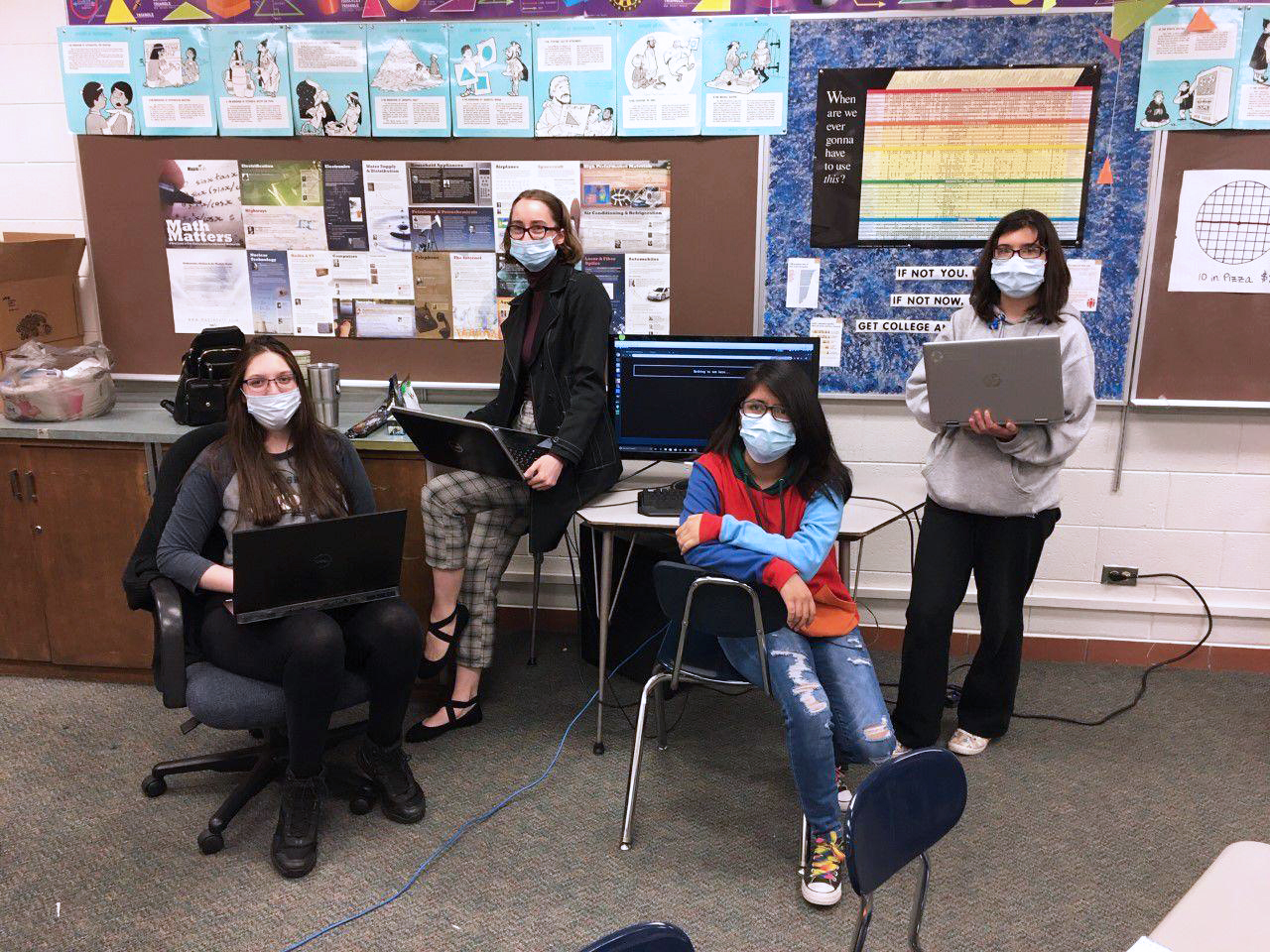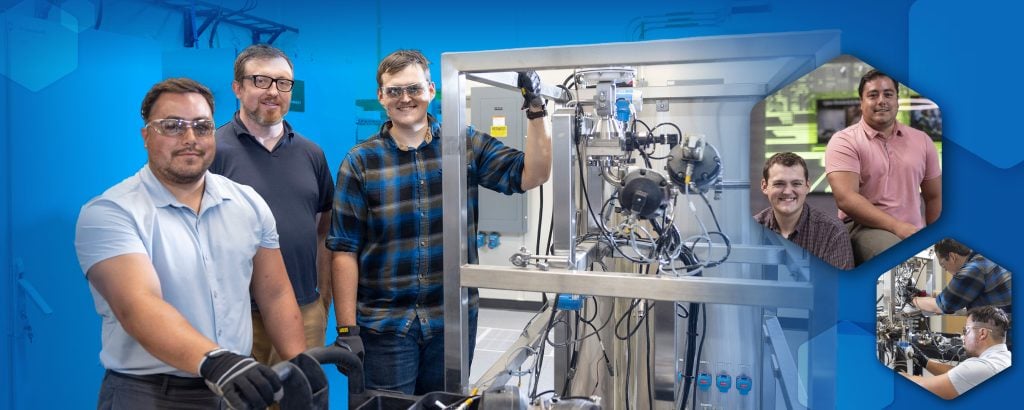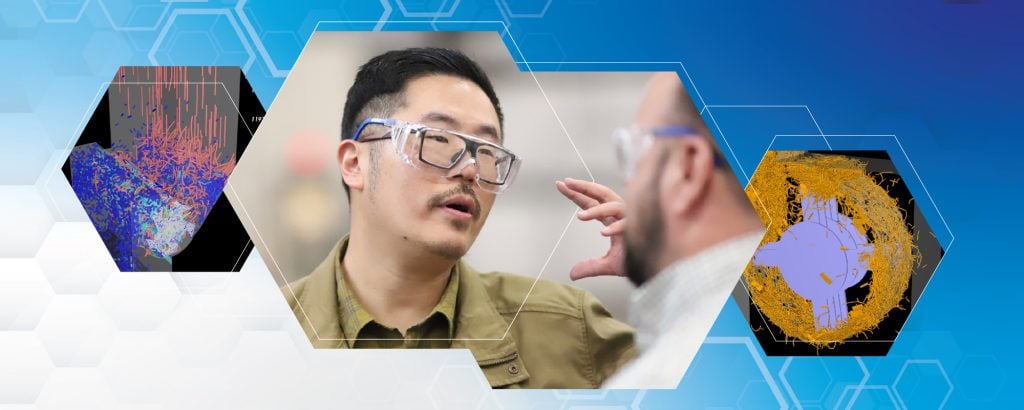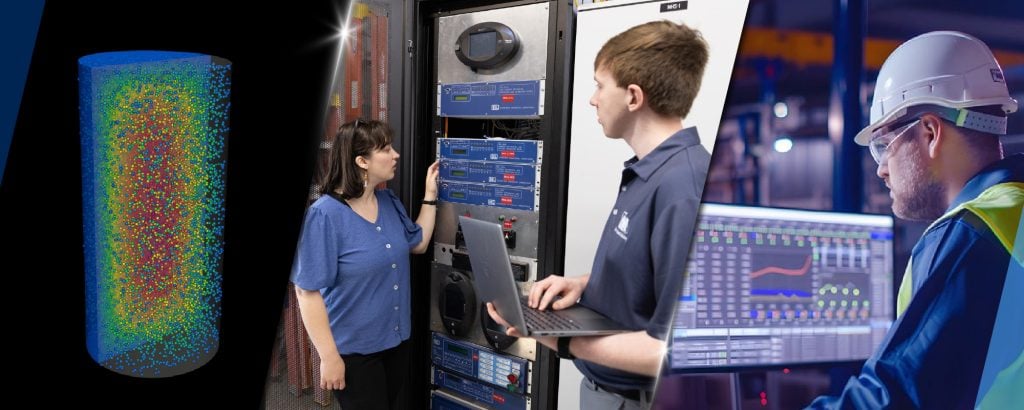It would have been a challenge even in normal times, but a four-girl team from Skyline High School in Idaho Falls overcame quarantine and equipment issues to finish 29th in Girls Go CyberStart, a national online problem solving competition held in late May.
“It was kind of a hard push at first,” said Carla Rudolf, adviser to the SHS Code Club. Members still had schoolwork to focus on, and Rudolf herself had 133 math students to teach remotely. When the team – Karina Permann, Sarah Youinou, Krystal Sanchez and Symphony Garcia – showed up at school on May 20 at 7 a.m., it was the first time they’d seen each other in person since March.
Two days, 30 problems
Over 35 hours in two grueling days, the team was given 30 cybersecurity problems to solve. The challenge was to think like hackers. They managed to solve 17, which earned them their Top 30 finish.
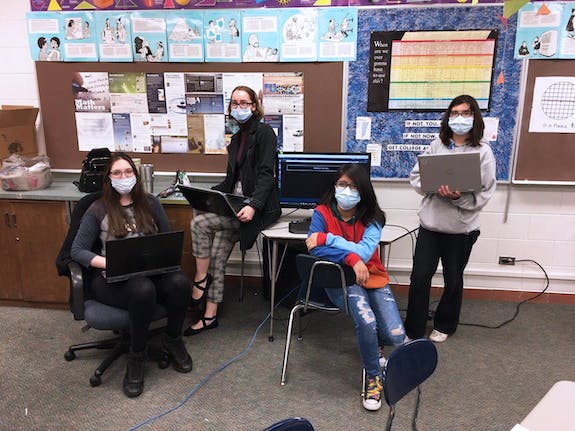
“I know we were all very determined to help each other out. Who got credit really didn’t matter,” said Permann, a senior and member of the Advanced Placement Computer Science class.
Overall, 276 teams from 41 states and the U.S. Virgin Islands participated. Five came from Idaho and two others, from Meridian Technical Charter High School and Centennial High School in Pocatello, also finished in the Top 30.
The invitation for local schools to participate came from Idaho National Laboratory. The lab sent out a Coding Coalition announcement in late 2019, promising registered clubs $1,500 in grant money to cover club materials and a stipend for advisers. Each club was also guaranteed an INL STEM ambassador to serve as a cyber guide. Eligible clubs had to commit to participate in Girls Go CyberStart or eCYBERMISSION, national programs designed to promote learning in science, technology, engineering and math.
In addition to Skyline, teams from Compass Academy, Hillcrest High School and Bingham Academy filed in time for the mid-January deadline. No one knew then of the chaos that was coming with the COVID-19 pandemic.
Girls Who Code
The SHS Code Club started in spring 2019 when Sarah Youinou, an INL computer science summer intern, approached Rudolf, her geometry teacher, about being an adviser to a group that wanted to participate in the Girls Who Code program. The club, which welcomed boys to participate as allies, met every Tuesday after school.
After moving through the GWC tutorials, starting with programming animations using Scratch and progressing to Python language, Youinou suggested they try competing in Girls Go CyberStart. They began with CyberStart Assess, which qualified them to go to the second stage, CyberStart Game. During this time, Rudolf learned of INL’s K-12 Education Enrichment program and the support available from Coding Coalition.
Even after the school went to remote learning, club members completed enough levels necessary to qualify for the national competition. The challenges, which included code-breaking, decrypting ciphers and finding hints in HTML code, were a lot of fun, said Rudolf, who admits she had a lot to learn about coding and cybersecurity. “You really learn some background in cybersecurity and hacking without realizing you are spending a lot of time engaged,” she said.
Advice from an expert
The Skyline team’s cyber guide, May Chaffin, is a computer security researcher for INL. She is also the mother of team member Karina, which gave her a personal stake in the team’s success. “They were all working really hard to attack the challenges,” she said. Even after 10 ½ hours the first day, at night they were still thinking about them.
Because of a planned power outage, the team had to move from Skyline to a local hotel’s conference room. They were also limited by the computers a few members had, which lacked the capacity to load the competition’s virtual machine. “A lot of the challenges wouldn’t work for them,” Chaffin said. Nevertheless, her 17 years of experience in computer and cybersecurity at INL worked in the team’s favor.
Given the challenges they faced, Rudolf feels the team has a lot to be proud of. As Karina, Sarah and Symphony head off to college, it will be up to a new cadre to pick up the torch in 2021. “I’d say the greatest lesson from this year is to prepare better,” said Karina. “We had so many technical issues.”
“We are so proud of what this Skyline team accomplished and how they persevered and showed such creative problem-solving skills throughout the levels of competition,” said Jennifer Jackson, the INL’s K-12 Education Program manager.
Looking to the future
INL plans to offer the Coding Coalition to students again this coming school year and is already working on plans to expand and improve the program. Future opportunities will be offered to elementary and middle school teams, and the type of clubs and organizations eligible for support will be expanded.
“The Skyline team is a great example of how the coding coalition model of pairing a school adviser with an INL cybersecurity STEM ambassador to lead a computer science based extracurricular team can be successful,” Jackson said. “We’re excited for next year to include more teams and more age groups in INL’s Coding Coalition.”
Educators interested in joining the program in the coming school year should watch stem.inl.gov for more information.

